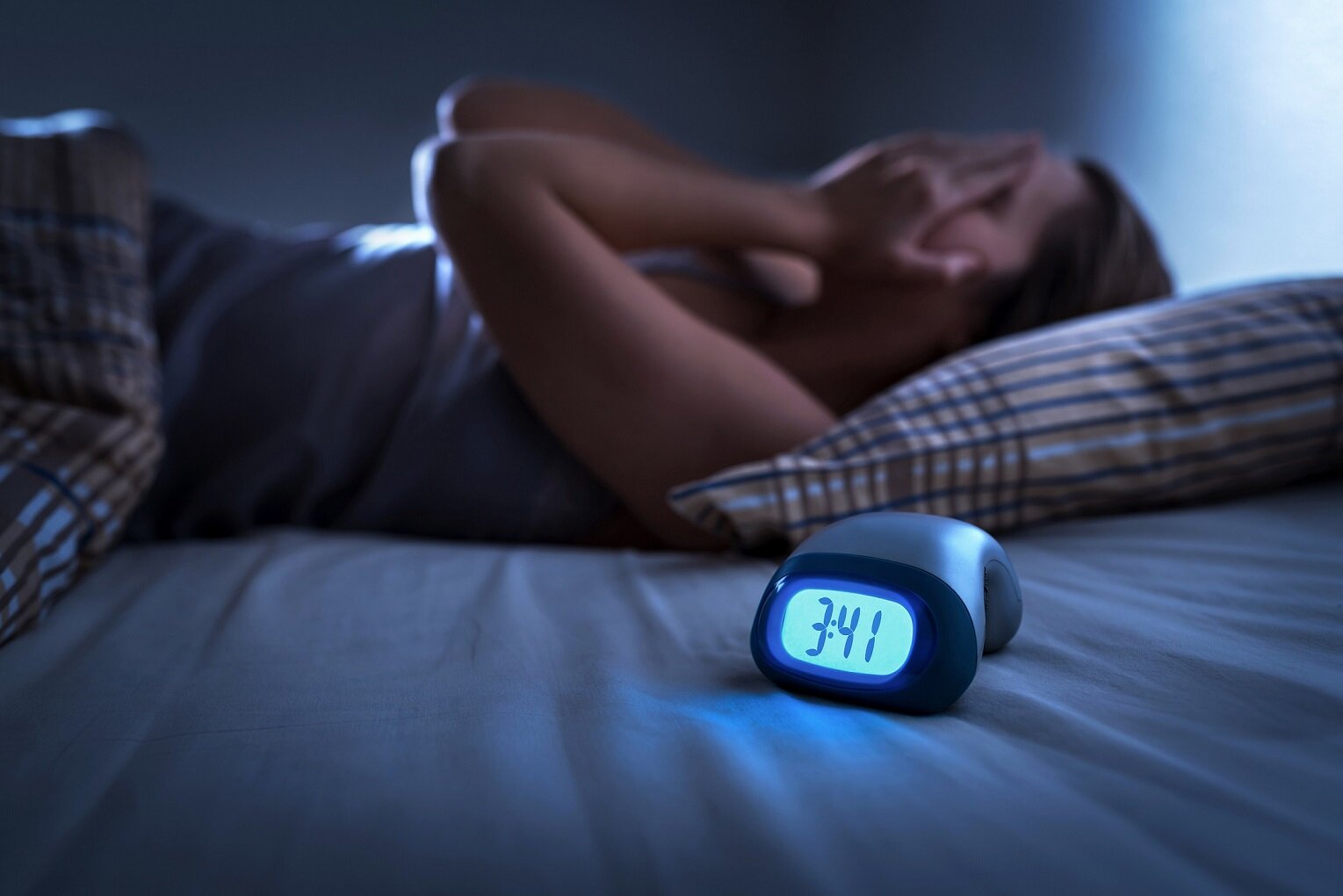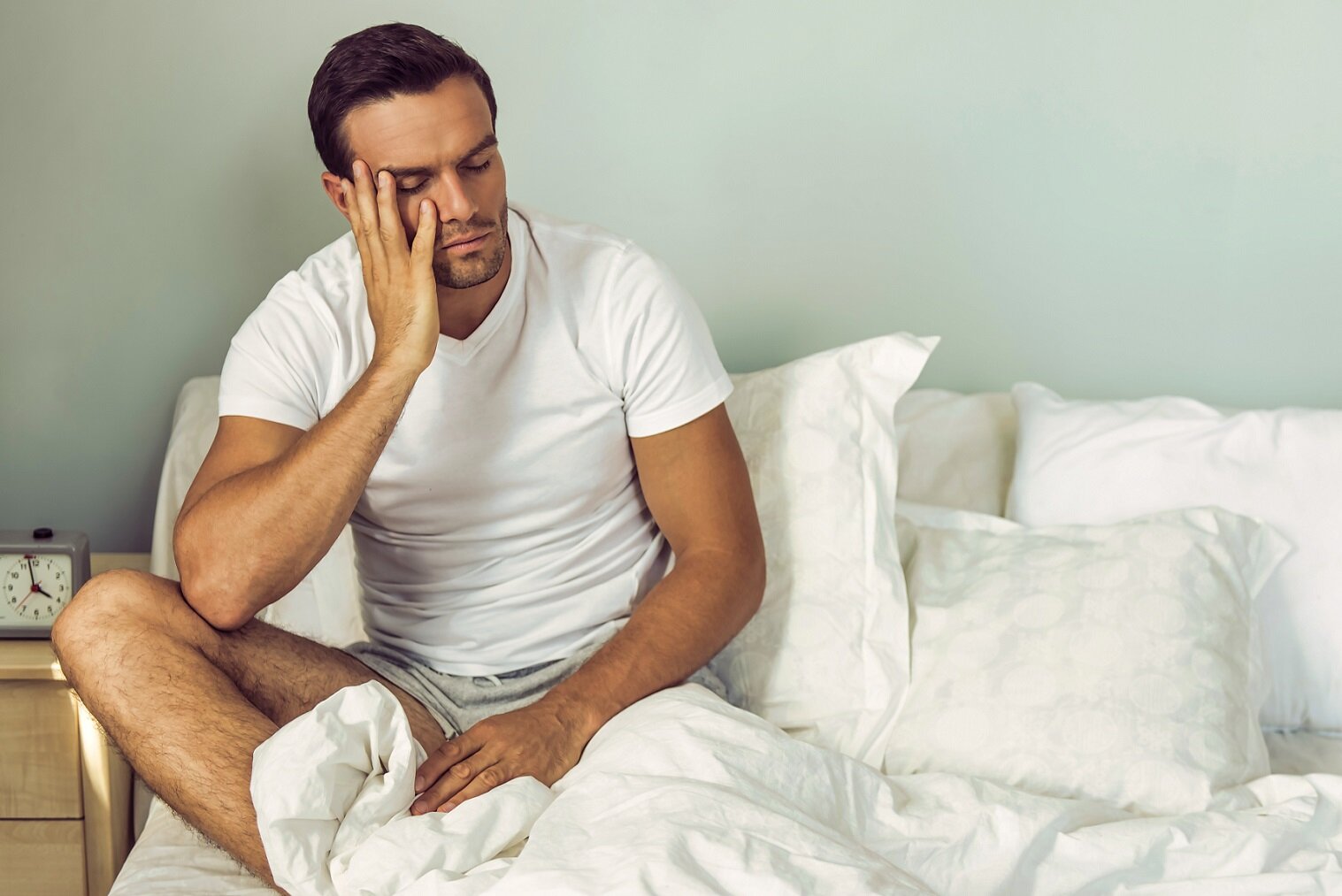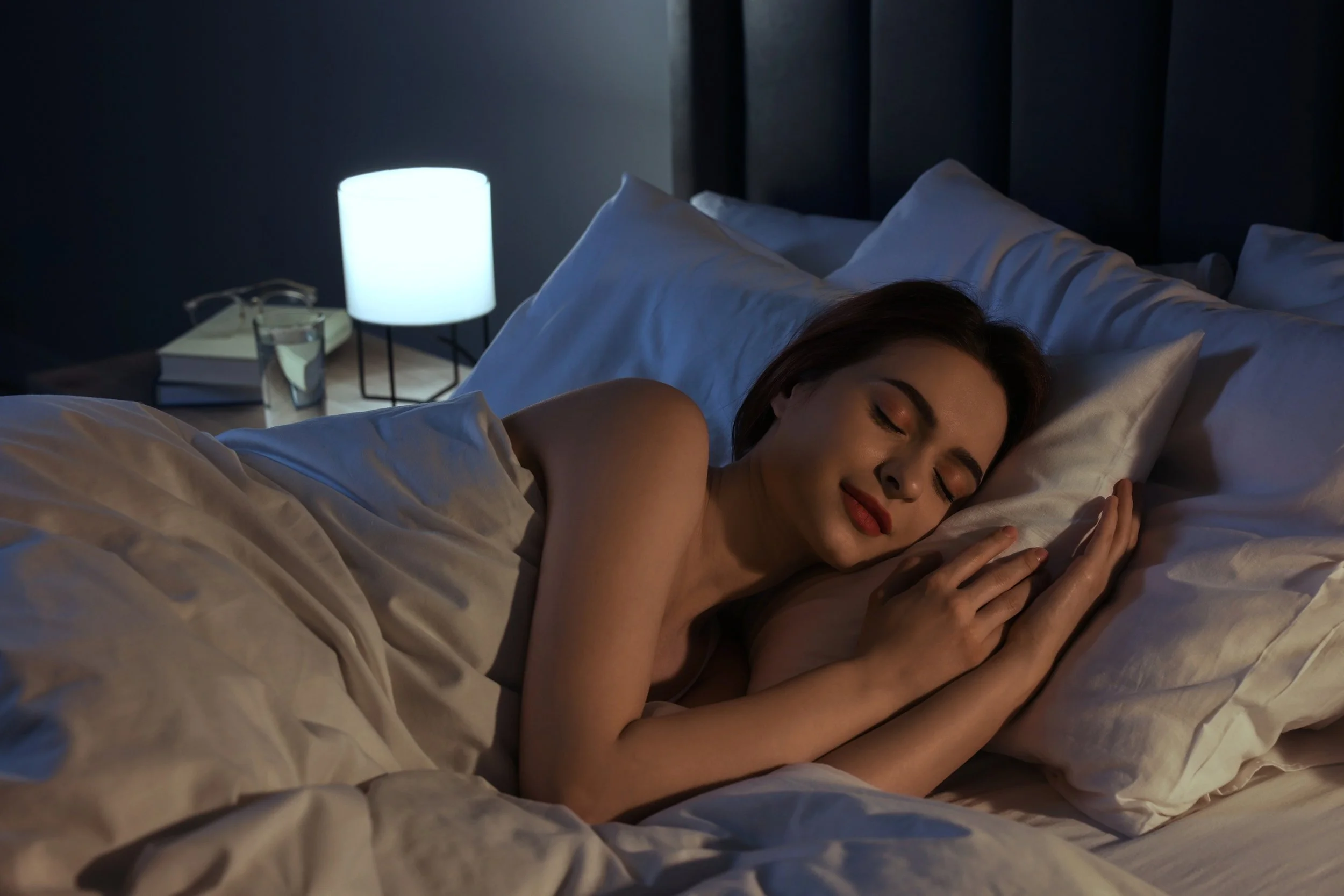You might recognize the following: You need to get up early for a job interview or school test the next day, so you decide to go to bed early for a good night's sleep. Before you know it, it's midnight, and you're unable to sleep, just staring at the clock
In the back of your mind, you think: 'I still have 8 hours of sleep, it will be fine'. You lay awake for another hour and start calculating: ‘only 7 hours left, but that should work’. Eventually, it's 3 AM, and you're still unable to sleep; stress is mounting up, you feel like this isn't going to work tomorrow.
A terrible night like this will happen to most of us from time to time. You might think anything less than 8 hours is bad. We're more concerned about the duration of our sleep rather than how deep we sleep.
This article explains why that is an incorrect assumption and what you can do to get a better, deeper sleep.
New: follow us on Bluesky!
Image Credit: Tero Vesalainen via Shutterstock
Let's start with some good news; according to sleep science expert at Maastricht University, Dr. Merijn van de Laar 4.5 to 5 hours of sleep is sufficient for most people.
There are some misconceptions about how sleep occurs. Many people seem to think that they turn off their body as soon as they fall asleep and turn it back on when they wake up. Sleeping deeper and deeper at the beginning of the night and lighter and lighter at the end, before waking up.
This assumption is incorrect; sleep consists of several phases (or cycles), which means deep sleep doesn't occur in one block but in separate instances, surrounded by lighter sleep phases.
Looking at the graph below, you can see that people get the deepest sleep early in the night. Those are the first 4.5 to 5 hours of sleep mentioned by Dr. van de Laar, known as core sleep.
The periods of deep sleep are the most important when it comes to refreshing your brain. The lighter sleep phases that occur in between deeper sleep phases are known as REM sleep or desynchronized sleep; these are the phases where dreams occur.
Image Credit: arka38 via Shutterstock / HDR tune by Universal-Sci
Waking up sleepers during a REM phase is a standard experimental approach for eliciting dream reports; under these conditions, 80 percent of neurotypical persons can provide some type of dream report.
It can be challenging to wake up someone who is engaged in deep sleep; sometimes, even shouting, pulling, or pushing doesn't wake them up. On the other hand, an individual engaged in light sleep can wake up by even the slightest sound.
Why is deep sleep important?
During deep sleep, essential processes take place. One can think of physiological processes such as muscle growth and tissue repair, but deep sleep is also vital for brain functions such as memory. Not getting enough deep sleep can compromise all of these processes and on top of that, you will be sleepy and listless the next day.
So what about those 8 hours? The amount of hours of sleep you need in a night is mostly dependant on the amount of deep sleep you received.
Why do we even have light sleep phases?
So if the amount of sleep you need in a night is mainly dependent on the amount of deep sleep you receive, why do we even have light sleep phases? It almost sounds like a waste.
Well, from an evolutionary point of view, it can be advantageous to sleep lightly. Imagine if we had a deep sleep phase of 5 hours straight where it is challenging to be woken up. In such a scenario, we would be susceptible to predators if we were to sleep in a dangerous environment. It is more convenient to have some lighter sleep phases in between the deeper ones.
What is sleep pressure
According to Dr. van de Laar, it is vital to look at sleep pressure if your aim is to get a good night of sleep.
Sleep pressure is related to the amount of time you've been out of bed. The longer you've been away from your bed, the higher your sleep pressure gets. On top of that, your activity level during the day also plays a role. The more active you are during the day, the higher your sleep pressure will be at nighttime.
Imagine that you've been out all day. You've been on a city trip, went to a few exhibits, and walked around all day. After such a day, most people fall asleep like a log when they finally reach their hotel room. This is because the sleep pressure is very high on such an occasion.
Being busy during the day builds up sleep pressure - Image Credit: NDAB Creativity via Shutterstock
If sleep pressure is very high, there is little to argue. It can even become problematic at times. You may have experienced this yourself during a late-night drive, where it is extremely difficult to keep your eyes on the road and pay attention. It is on such occasions where it becomes apparent how powerful sleep pressure can be.
Tension
On the opposite of sleep pressure, we find arousal or tension. These are things that make you alert and keep you awake.
Think of it as a scale. During the day, sleep pressure becomes 'heavier' and 'heavier’ until the scale tips, and you can fall asleep quickly. However, when you experience exciting or stressful things, tension builds, and you actually become more alert and awake.
Think about the initial thought experiment mentioned at the top of this article where you wanted to get an early night because of an important interview or test the next day. On such an occasion, tension may weigh more on the scale than your build-up sleep pressure.
Image Credit: Cinderella Design via Shutterstock
Can’t sleep stressed
It is impossible to just simply put away the stress and tension you experience as a result of that important test or interview the following day.
In bed, you notice that you start to get more and more stressed during the night. You may be thinking, 'I need to fall asleep soon or else I'm going to fail'. But you can’t because you are all riled up.
Perhaps making things even worse, chances are that when you finally fall asleep, you'll sleep much lighter and more fragmented than you usually do.
This experience finds its roots in evolution as well. Your body experiences tension and stress as an indication of danger. When dangers or threats occur, it's not at all beneficial to sleep deeply. In ancient times you would need to stay alert and check the environment for threats from hostile tribes or predators.
What can I do to fall asleep during a stressful time?
We know that it is important to have high sleep pressure and not too much tension in order to fall asleep easily.
How do you ensure that the scale is tipped in the right direction for a good night's sleep? If this is a common issue for you, you've probably heard and tried all sorts of things to mitigate it.
Of course, there are the standard things you should keep in mind, such as no caffeine in the evening and reduced screen time at night. However, one source of tension that is often overlooked is the alarm clock.
At first glance, an alarm clock seems nice to have; you can look at it, know what time it is and subsequently calculate how much time for sleep is left for you. The opposite is true though, every time you look at that alarm clock, tension increases. You start calculating; you focus on the amount of time left; you might get a stress reaction after you've made that calculation and so on. According to van de Laar, the best thing to do is covering up your alarm clock or turn it around.
It is also important to remember that your night mirrors your day; if you've had a stressful day, you'll sleep less deeply. It is therefore helpful to have sufficient breaks during the day, allowing you to relax.
Don't go too far with the relaxation, though; having a nap, especially in the evening, can be detrimental to your sleep quality at night as it reduces build-up sleep pressure.
Something that can help enormously is exercise. Exercising relieves tension, helping you not take any built-up tension with you to bed.
Some people find it difficult to tip the sleep scale in the right direction structurally. These individuals are at risk of developing insomnia.
We speak of insomnia when you sleep poorly on three or more nights per week, combined with difficulties with performance during the day.
More drastic measures are needed for these people. Dr. van de Laar recommends sleep restriction in these cases.
Sleep restriction is what the name implies; you are given a shorter time to sleep. Sleep restriction can be accomplished by reducing the amount of time you are allowed to lie in bed. The aim here is to increase sleep pressure.
How to effectively apply sleep restriction
If you're a bad sleeper who sleeps an average of only 6 hours per night and on top of that, the sleep you get is light and fragmented you may benefit from making an agreement with yourself that enforces you not to lie in bed for longer than 6 hours per night from now on.
For example, go to bed at 12 AM but set the alarm at 6 AM. When the alarm goes, you have to get up right away, no matter how long you've been awake that night.
In order for sleep restriction to be effective it is of vital importance that you actually get out of bed when the alarm goes, even if you still feel tired - Image Credit: VGsotkcstudio via Shutterstock / HDR tune by Universal-Sci
This method may feel counterintuitive as you want to sleep more, not less. However, as reported by Dr. van de Laar, sleep restriction aims to achieve two things.
1. Increase sleep pressure
By being out of bed for a more extended period, you increase your sleep pressure. This ensures that people fall asleep better. The aim here is for people who have insomnia to gain trust. According to Dr. van de Laar, individuals with insomnia often lack trust in their bodies when it comes to sleep due to the seemingly endless struggle they have experienced.
2. Increase relative core sleep effectiveness
The second effect that happens when enforcing sleep restriction is that the relative amount of deep sleep you experience increases. You'll get the crucial core sleep in a shorter period of time.
Dr. van de Laar notes that this effect doesn't occur immediately, but only after strict adherence to a sleep restriction regimen. Most of the time it will start happening after 7 to 10 days. After a few weeks, you'll begin feeling fitter as your body has to get used to the new rhythm. Basically, your sleep will improve first, but the effects of feeling fit during the day will come later.
In Dr. van de Laar's experience, people are often surprised that they can function well despite the shorter sleep time. They tend to quickly notice that you can function much better with 6 hours of good, deep sleep than after 8 hours of light, fragmented sleep.
Note that it is essential that the extra hours gained from sleep restriction need to be used for relaxation. Van de Laar warns not to go overboard when you suddenly have more time in a day than expected. Don't attempt to do more work or engage in other stressful things during these hours. Read a book, go for a long walk, use the extra time to relax.
In short: Most people function just fine on less than 8 hours of sleep a night, as long as they get enough deep sleep. Try not to fixate on 8 hours of sleep. It's better to have a short deep sleep than a long, restless, and light sleep.
Sources and further reading:
If you enjoy our selection of content, consider subscribing to our newsletter
FEATURED ARTICLES:













